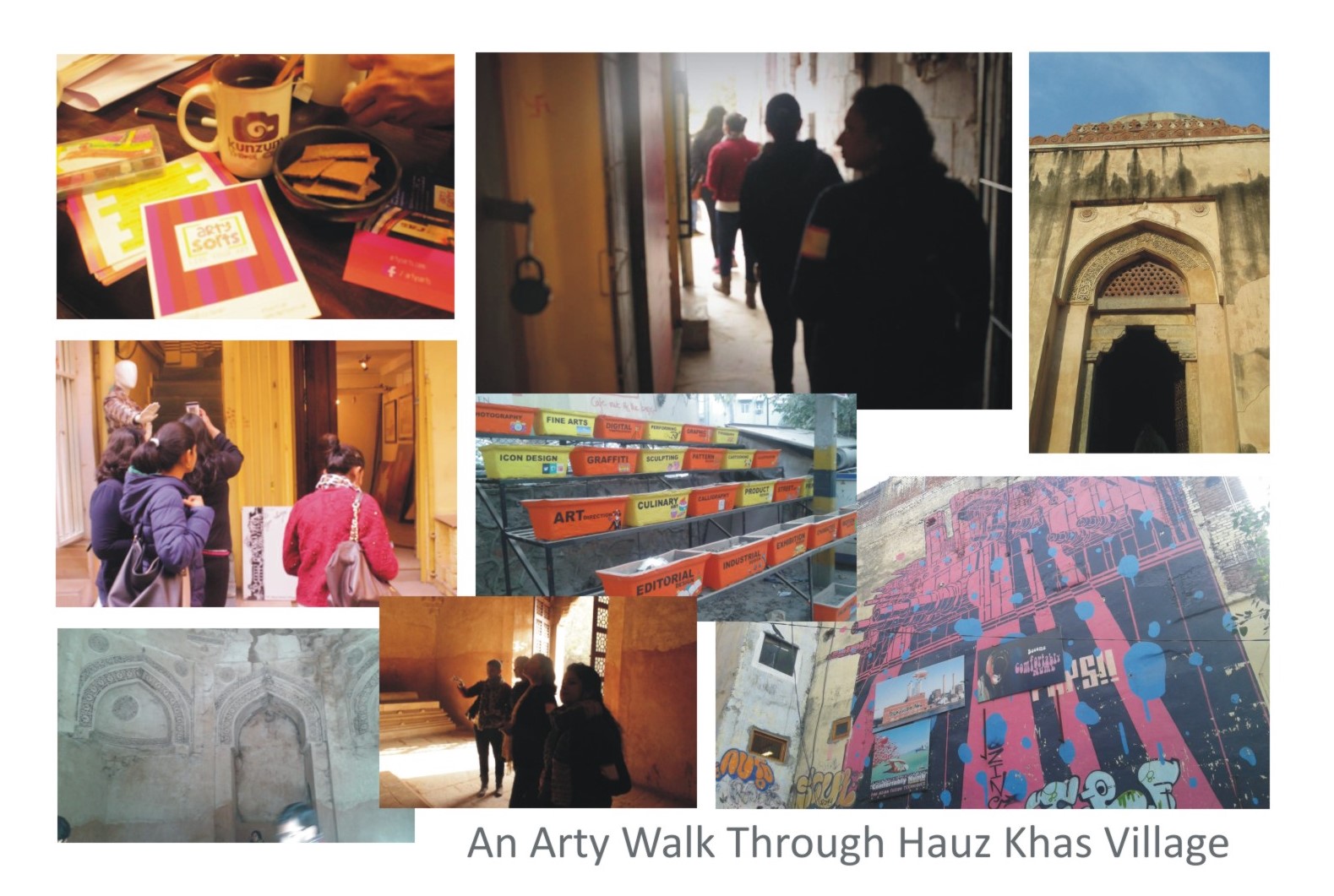A Walk Of Art
Snippets from the walk
I write with the music, a wall of blue stares back at me, and the music plays on, I carry my thoughts and finally put them on a pillar of flat white, paste them forever to be seen. The sun has gone, the stars yet to appear, from this to what is to come, flows an orchestra, through sounds of cellos, flutes and violins, I play in my head words, as passages of a song, the keyboard is my piano and the mouse right by my side, this a set of drums. I turn around to say goodbye, seated in a metallic cubicle that moves through the wind, faster than the ones beside it, through tunnels and slopes, moon holes and forested asbestos, through the maze, short cuts and sunlit corners, haunted dark turns; a cold of grey surrounds, spots of dust among foggy scars.
There are stories which we don’t tell, enclosed, burdened with a hope that its day would come. Words meet passages, lines are drawn, caricatures of black sprinkled across pages of yellow, lit with streams of the sun, lighted nightly beams now iridescent with the rays of day time. A metallic cold surrounded me for forty seven minutes, and I waited only to be pushed onto sights of no sight, a crowded market with people giving way to gaps of burgundy, reds and ruins.
On this sunny winter day, up through a spiral staircase, I met with a group of strangers, he a stranger to her and her to thee, yet we became friends in that hour of food, conversation and art. Through narrow lanes of umpteen possibilities, a reservoir, a tomb, walls of graffiti, up and down wedges of the bustling Hauz Khas Village, we were guided through to quaint spaces, onto shores of colourful shops, cafes and curio places.
The Tomb of Feroz Shah Tughlaq, well laid out pavilions, The Mosque, and a territory that was once the Madrasa, makes Hauz Khas a place often unexplored beyond the boundaries of fashion, art and food. The village transcends between stories of change in the 14th century to caricatures of transition in the 21st, of quirk evolving into a collage of multiplying arenas of music, socialising and fodder.
Some fine coastal food, an unending narration of quirk, art and history, leading to an hour of buoyant conversation and a few minutes of tea bag art and a mug of aromatic Kunzum coffee at the Kunzum travel café in Hauz Khas, this arty winter walk by ArtySorts and Kunzum travel café, led by Reena Cherian Pathickal, was an amalgamation of unheard stories, repartee and new friends.
From passages of broken stone and pathways of grey, hidden corners and continuous narratives through to art evenings and exhibits showcasing art works by various artists, the cold envelopes colours of gold, white and brown, of still lives in ceramic. Gallerie Nvya showcases an India Art Fair 2016 collateral event entitled, “Transition / Tradition,” a contemporary ceramic art of India and South Korea exposition, with thirteen prominent Indian artists- Manisha Bhattacharya, Shirley Bhatnagar, Trupti Patel, Vineet Kacker, P R Daroz, Reyaz Badruddin and Zaida Jacob, among many, and seventeen prominent South Korean ceramic artists- Han Young Sil, Oh EunKyo, Jung Joon Young and Lim Yoon Sun, to name a few.
From art walks and exhibits, art becomes a story to be told, historic, resplendent, demarcated lives, to centres of sculpted expressions. As the music unfolds from this note to another, art carries itself on music boxes and animated screens.
The India Habitat Centre closes the winter month of January with screenings of films narrating unique stories about religion, language, love, poetry, war and victory. “Had Anhad” (Bounded-Boundless), is one such film, an ode to the 15th century mystic poet, Kabir, his poetry and beliefs. The film journeys through song and poem into the politics of religion, and finds myriad answers on both sides of the hostile border between India and Pakistan.
Other films like “Jistahra Hum Bolte Hain” about the evolution of the Hindi language, to “This Changes Everything” about climate and its relation to economic changes in a state, to Latvian films like- The Gift, In The Fog, Dream Team 1935, and Four White Shirts, the film club at The Habitat celebrates diverse lives and musings.
This walk ends here, on this word, giving way to passages of silence, the music stops, pain descends upon unwritten days, a loss remembered, tears curtailed, yet the hurt lingers, without a melody the curtains cease being pulled by the heady wind, the haze now nonchalant, no karma, less drama; soundless before the shelling, untainted before the grime.
At The India Habitat Centre, Lodi Road, New Delhi
Latvian Films: Screening of films till the 30th January, at 7:00pm
Had Anhad: 27th January 7:00pm; Jistahra Hum Bolte Hain: 29th January, 7:00pm; This Changes Everything, 28th January, 7:00pm
At Gallerie Nvya, 101-103 Square One Designer Arcade, C-2, District Center, Saket
Group show- Transition / Tradition, on view till 31st January





